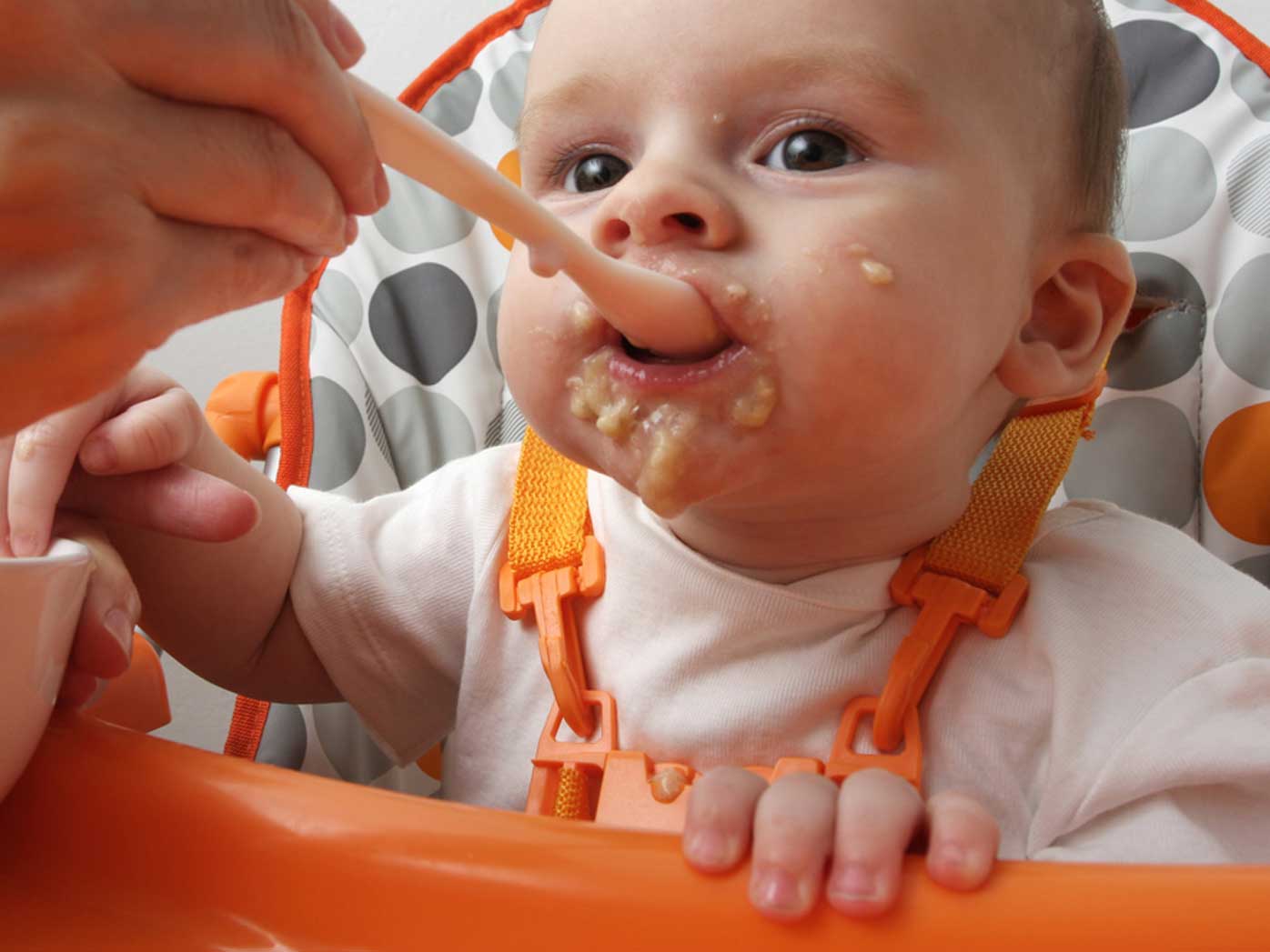
Not a single baby or toddler food sold in Australian supermarkets meets international guidelines for health and promotion set by the World Health Organization, a new study has claimed
Baby and toddler foods have skyrocketed in popularity in recent years, with hundreds of options featuring appealing characters to attract children, while marketing labels promote various health benefits to their parents.
A team from the George Institute for Global Health analysed 309 infant and toddler foods sold in major supermarkets, which are marketed at children aged between six months and three years of age.
READ MORE: Teens arrested after over 100 headstones destroyed at cemetery
More than three-quarters of the foods (78 per cent) assessed did not meet the mark on overall nutritional requirements, with most of them containing excess calories or sugar.
None of the products met WHO guidelines for promotion.
Research Fellow at the George Institute for Global Health, Dr Elizabeth Dunford, said consuming excess calories sets children up for obesity later in life, while the early introduction of sweetened foods can drive life-long taste preferences.
Currently, one in four children in Australia are overweight or obese – a statistic that has failed to come down despite various health initiatives over the past two decades.
“Time-poor parents are looking for convenience, but most would be shocked by the industry’s deceptive marketing tactics suggesting products are healthier than they are, that are rife across this category,” Dunford said.
Australia’s health guidelines recommend no sugars be added to foods for children under a year old, while consumption should be “limited” in children older than that.
The baby foods were assessed against the WHO Regional Office for Europe’s Nutrient and Promotion Profile Model, which was established in 2022 and is considered the gold standard benchmark.
The researchers found that each infant food product contained an average of 5.6 health claims, such as ‘no added sugar’ or ‘free from colours and flavours’.
There was one case where 21 such claims were found on a single product.
“These claims are commonly used on unhealthy products and can contribute to a ‘health halo’ effect, leading consumers to believe they are healthy,” George Institute dietitian and research fellow, Dr Daisy Coyle, said.
“All too often we see products highlight what they don’t have, such as ‘no gluten’ or ‘no additives’, rather than what they do contain such as high levels of added sugars.”
The findings come amid a national review of infant food products by the Food Regulation Standing Committee, which is currently open to public consultation.
links to content on ABC
9News





